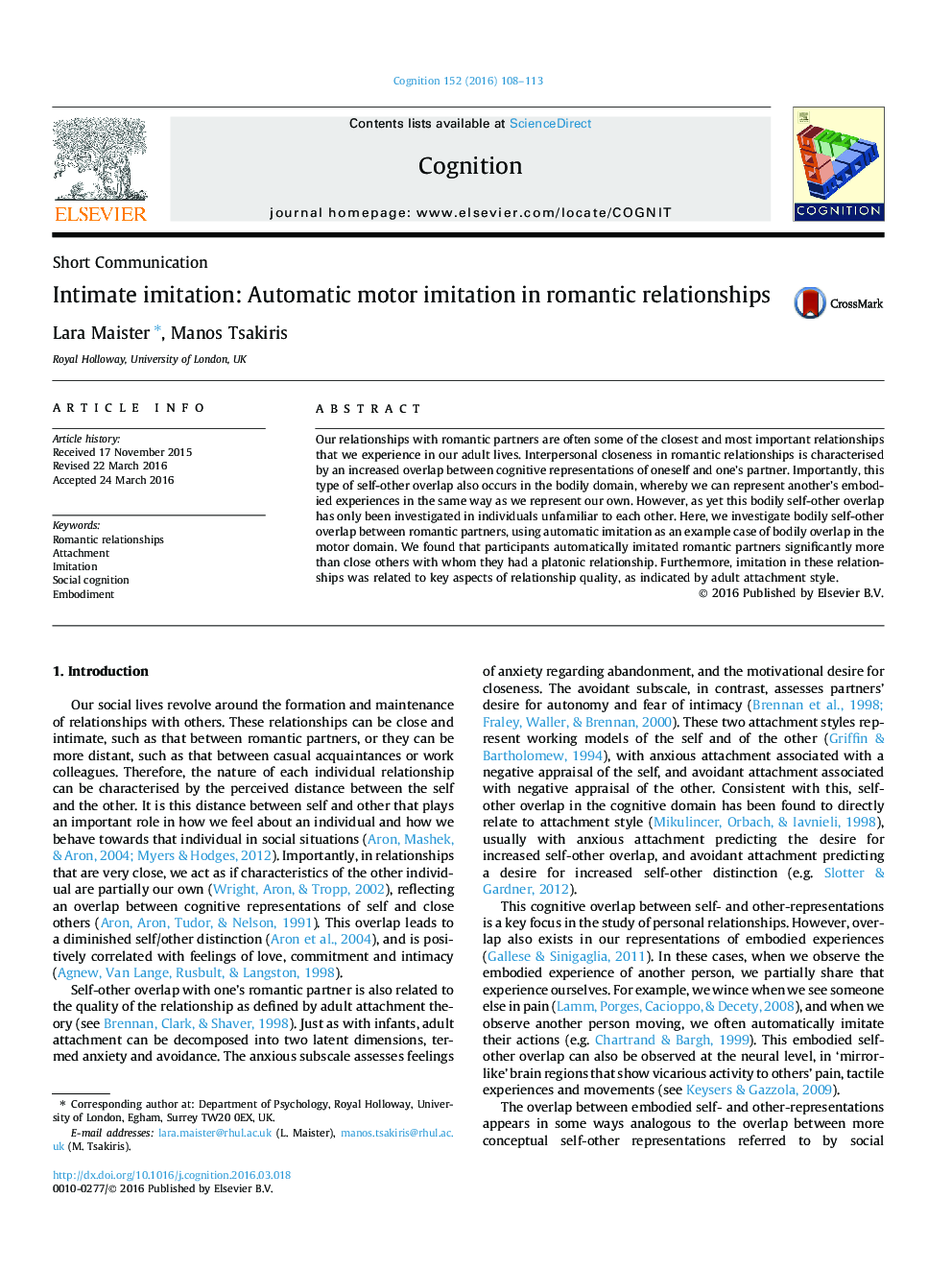| Article ID | Journal | Published Year | Pages | File Type |
|---|---|---|---|---|
| 7286197 | Cognition | 2016 | 6 Pages |
Abstract
Our relationships with romantic partners are often some of the closest and most important relationships that we experience in our adult lives. Interpersonal closeness in romantic relationships is characterised by an increased overlap between cognitive representations of oneself and one's partner. Importantly, this type of self-other overlap also occurs in the bodily domain, whereby we can represent another's embodied experiences in the same way as we represent our own. However, as yet this bodily self-other overlap has only been investigated in individuals unfamiliar to each other. Here, we investigate bodily self-other overlap between romantic partners, using automatic imitation as an example case of bodily overlap in the motor domain. We found that participants automatically imitated romantic partners significantly more than close others with whom they had a platonic relationship. Furthermore, imitation in these relationships was related to key aspects of relationship quality, as indicated by adult attachment style.
Related Topics
Life Sciences
Neuroscience
Cognitive Neuroscience
Authors
Lara Maister, Manos Tsakiris,
